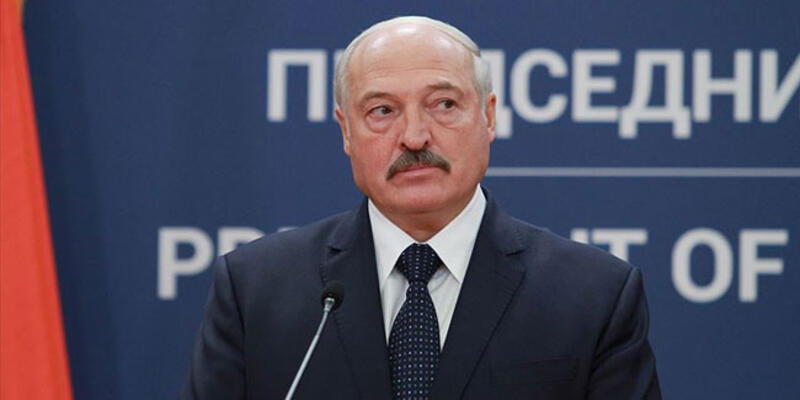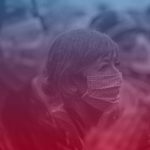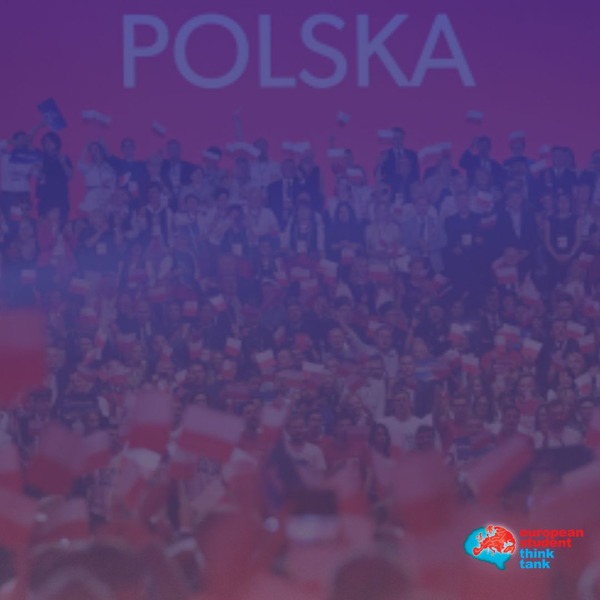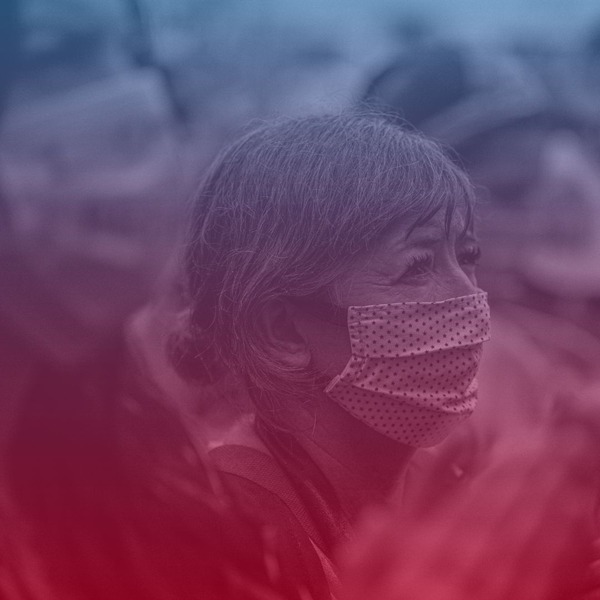
The Belarussian economy has been stagnant for a long time. According to the World Bank’s semi-annual Economic Review, the economic growth rate remains low, partly due to a rigid economic structure and a slow-down in export markets (World Bank, 2020). Even before the COVID-19 pandemic, the expected GDP growth rates for 2020 and 2021 were a mere 0.9% and 0.5% (BelarusFeed, 2020). As a crucial post-Soviet state, Belarus previously enjoyed a well-developed industrial base that became outdated and reliant on subsidized Russian energy and other Russian markets (Central Intelligence Agency, 2018). Around 80% of the industry remains state-run, and Russian businesses have saturated foreign investments (Central Intelligence Agency, 2018). Moscow’s interest in Belarus stems from its industrial assets there, like the Yamal–Europe pipeline. Thus, Belarus is of strategic importance for Russia and its continued investments as it provides logistical access to the rest of Europe.

Given the recent fall in oil prices and the spread of the virus, economic instability is more imminent. Minsk relies on modest rates for Russian refinable oil, which are no longer provided by the Kremlin (Shkliarov, 2020). In a bid to pressure Belarus to establish closer ties, Russia rejected its oil deal with the country, offering oil supplies at market rates instead (Higgins, 2020). Given its B credit rating, the country has not been able to use loans from international credit facilities to alleviate the situation (Moody’s, 2020). The economic problem has been further exacerbated by the closure of borders as overall export volume has decreased substantially in recent months. Thus, the Belarussian economy is expected to contract by at least 4% this year (World Bank, 2020). In addition to the threat of financial insecurity, President Lukashenko’s administration has faced political challenges as a result of the widespread outrage over the arrest of Belarus’ former opposition leaders (Seddon, 2020). The country’s electoral commission rejected Lukashenko’s main rivals as candidates for the election (Makhovsky, 2020a). Banker Viktor Babariko’s ballot was rejected based on his ongoing criminal case (Kalinovskaya, 2020a). Former ambassador Valery Tsepkalo was also denied the chance to run, further facilitating a victory for President Lukashenko. The arrests and controversial elections have given rise to the loudest protests in Belarus in recent years (Makhovsky, 2020a). While the European Union has previously appealed for Babariko’s release, the situation received little attention from the West during the COVID-19 lockdowns (Shkliarov, 2020). Amid diplomatic pressure and claims of Russian influence over Lukashenko by protestors, Minsk accused Russia of meddling in the presidential election (Kalinovskaya, 2020a). A Belarussian security official claimed that Russia controlled Babariko through the corporate link between Belgazprombank and Russia’s Gazprombank (Al Jazeera, 2020). Critics have disregarded Lukashenko’s condemnation of Russia as an attempt to reinforce his legitimacy (Shkliarov, 2020). However, Lukashenko has seemingly pursued a more balanced foreign policy, not relying solely on the Kremlin’s support but also signalling prospects of better relations with the West. He has been cooperative with the European Union in recent years through the likes of the Eastern Partnership initiative, which provides a channel between the EU and several post-Soviet states to discuss trade, economic strategy and other arrangements. Yet the chances of Russia tolerating an independent Belarus remain low. The Russian deputy foreign minister stated that Russia is not interested in a Maidan in Belarus, referring to the wave of protests in 2013 that led to the present situation in Ukraine (Sharifulin, 2020). Thus, Russia may not be fond of a regime change in Belarus, unless it is acceptable to the Kremlin. The OEC reports that Russia accounts for 60.2% of imports to Belarus (The Observatory of Economic Complexity, 2018). As such, it is clear that Moscow can and will use its economic leverage to influence Belarussian politics.
On August 9th, Lukashenko was re-elected with a landslide victory in the election with former English teacher, Svetlana Tikhanouskaya as his remaining closest competitor (Makhovsky, 2020b). The opposition claimed the election had been rigged and called for a recount, leading to a crackdown on protests (Balmforth, 2020). Tikhanouskaya, who galvanized support among the Belarussian opposition, was reported missing after leaving the election commission building on Monday. On August 11th, Lithuanian Foreign Minister Linas Linkevicius stated that Tikhanovskaya had fled to the neighbouring country out of safety concerns (Kalinovskaya, 2020b). Following his election, Lukashenko claimed that forces abroad were attempting to topple him by creating protests (Makhovsky, 2020b). He has warned that “there will be no revolution” (Makhovsky, 2020b). President Vladimir Putin sent a congratulatory message to Lukashenko, while the West has mostly condemned the outcome with Germany calling on the European Union to discuss sanctions on Belarus (Makhovsky, 2020b). While neighbouring EU member states have been critical of Belarus’ handling of the protests, the election has proven that Minsk may dare to separate its politics from Moscow, or at least give such an impression. Nevertheless, Lukashenko’s term ahead will have profound implications for Belarus and Russia’s geopolitical outlook. Lukashenko had been arousing the prospect of closer ties with the United States earlier this year. Secretary of State Mike Pompeo’s visit to Minsk was symbolically crucial for Belarus’ autonomy (Higgins, 2020). However, the visit did little to solve the rising issue of Lukashenko’s dependence on cut-rate energy supplies from Russia (Higgins, 2020). Despite Lukashenko’s strained relationship with Russia, the two countries remain politically aligned and would most likely not risk a falling-out that would create a Maidan in Belarus (Higgins, 2020). China, having recently increased its foreign direct investment in Belarus, could be a better alternative for Lukashenko to diversify his country’s economic partners and ease Russia’s concerns of encroachment from the West (Ministry of Economy of the Republic of Belarus, 2019). Imports from China are second only to Russia, and as Beijing looks westward for its Belt and Road Initiative, it may preserve Lukashenko’s outlook eastward (Central Intelligence Agency, 2018).
REFERENCES
- Al Jazeera. (2020, June 25). Belarus accuses Russia of election meddling, seeks talks.
Retrieved August 01, 2020, from https://www.aljazeera.com/news/2020/06/belarus-
accuses-russia-election-meddling-seeks-talks-200625121447586.html - Balmforth, T. (2020, August 10). Opposition in Belarus refuses to recognise official election win by Lukashenko. Reuters. https://www.reuters.com/article/us-belarus-election-opposition/opposition-in-belarus-refuses-to-recognise-official-election-win-by-lukashenko-idUSKCN2560SN.
- BelarusFeed. (2019, November 28). World Bank Has Discouraging Prospects For Belarus' Economy In 2020. Retrieved August 01, 2020, from https://belarusfeed.com/world-bank-belarus-economy-low-prospects/
- Central Intelligence Agency. (2018, February 1). The World Factbook: Belarus. Central Intelligence Agency. https://www.cia.gov/library/publications/the-world-factbook/geos/bo.html.
- Countryeconomy.com. (2020, February 28). Rating: Belarus Credit Rating 2020. Retrieved August 01, 2020, from https://countryeconomy.com/ratings/belarus
- Higgins, A. (2020, February 7). Putin Rejects Oil Deal With Belarus, Increasing Pressure for Merger. The New York Times.
https://www.nytimes.com/2020/02/07/world/europe/belarus-lukashenko-russia-
putin.html. - Kalinovskaya, T. (2020, June 19). Belarus Leader's Election Rival Detained as Crackdown Intensifies. Retrieved August 01, 2020, from
https://www.themoscowtimes.com/2020/06/19/belarus-leaders-election-rival-
detained-as-crackdown-intensifies-a70619 - Kalinovskaya, T. (2020, August 11). Belarus Election Challenger 'Safe' in Lithuania After More Clashes. The Moscow Times. https://www.themoscowtimes.com/2020/08/11/lukashenko-challenger-makes-
difficult-decision-to-leave-belarus-a71108. - Makhovsky, A. (2020, July 14). Hundreds protest in Belarus after two main challengers barred from election ballot. Retrieved August 01, 2020, from
https://www.reuters.com/article/us-belarus-election/two-main-challengers-to-belarus-president-barred-from-election-ballot-idUSKCN24F10W - Makhovsky, A. (2020, August 11). Bloody clashes in Belarus as West condemns crackdown after election. Reuters. https://www.reuters.com/article/us-belarus-election/bloody-clashes-in-belarus-as-west-condemns-crackdown-after-election-idUSKCN2560CU
- Ministry of Economy of the Republic of Belarus. (2019). Figures – Foreign Direct Investment. Ministry of Economy of the Republic of Belarus.
http://www.economy.gov.by/en/FIGURES-en/. - Moody's. (2020, April 10). Government of Belarus – B3 Stable: Update following forecast changes. Retrieved August 01, 2020, from https://www.moodys.com/credit-
ratings/Belarus-Government-of-credit-rating-806356891 - The Observatory of Economic Complexity. (2018). Belarus (BLR) Exports, Imports, and Trade Partners. Retrieved August 01, 2020, from https://oec.world/en/profile/country/blr
- Seddon, M. (2020, June 23). Belarus's middle class begins to turn on Lukashenko. Retrieved August 01, 2020, from https://www.ft.com/content/47e9c455-b640-483e-8317-a301c87dc920
- Sharifulin, V. (2020, June 19). Russia does not meddle in Belarus's internal affairs, Kremlin says. Retrieved August 01, 2020, from https://tass.com/politics/1169517
- Shkliarov, V. (2020, July 01). Political Upheaval in Belarus? Lukashenko Scrambles to Keep Power. Retrieved August 01, 2020, from https://www.fpri.org/article/2020/06/political-upheaval-in-belarus-lukashenko-
scrambles-to-keep-power/ - World Bank. (2020, May 26). Belarus Economic Update, May 26 2020. Washington, DC: World Bank. © World Bank. Retrieved August 01, 2020, from http://pubdocs.worldbank.org/en/602921590488924428/Belarus-economic-update-
spring2020-en.pdf
About the Author
Arash Toupchinejad is an MSF Candidate at Georgetown University. He has a passion for geopolitics and foreign affairs. Arash is also an editor and writer for Captivate Youth, a non-profit global affairs research organization.

 What Happened to the Polish Left? An Analysis of the Party’s Ideological Development and Changing Electoral Base
What Happened to the Polish Left? An Analysis of the Party’s Ideological Development and Changing Electoral Base  Struggle for Conservation of Slovenian Minorities in Austria, Italy and Hungary: Why does Multilateral Action Matter?
Struggle for Conservation of Slovenian Minorities in Austria, Italy and Hungary: Why does Multilateral Action Matter?  The Nature Restoration Law: A Significant Milestone or An Example of the EU Green Deal Losing Momentum?
The Nature Restoration Law: A Significant Milestone or An Example of the EU Green Deal Losing Momentum?  The Role of Women in Peacebuilding and Conflict Transformation
The Role of Women in Peacebuilding and Conflict Transformation 


